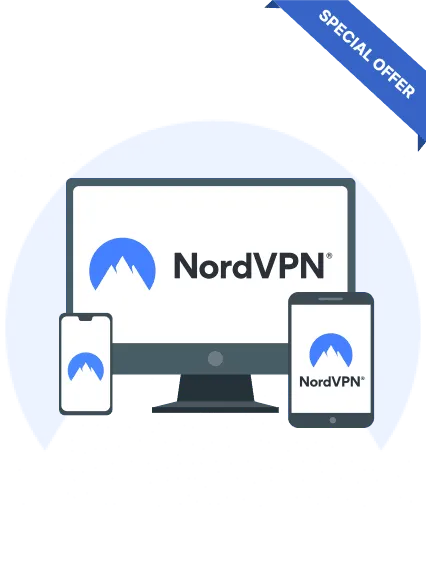
The threat of harm to our online selves, such as online surveillance, hacking, and data theft, can affect our physical, real-world selves. Hence, it is important to guard against any threats.
Thankfully, there are solutions to protect your internet security and privacy. Today, we will discuss one of these solutions: browsers with built-in VPNs. These browsers offer users a much more convenient way to stay protected while they surf the internet.
Best VPN browsers – Most reliable ones
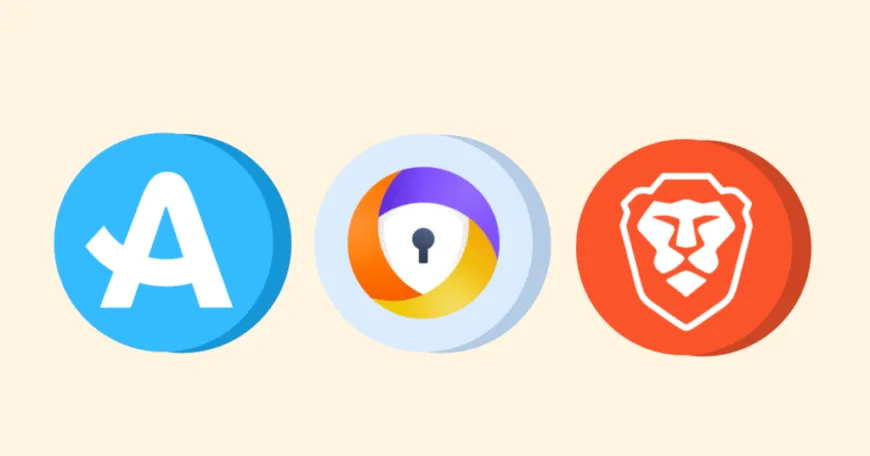
The Windows platform is arguably one of the most commonly used platforms globally. Consequently, there is a lot of software tailored for and around it. The following are the best browser options with the built-in VPN feature to consider if you use a Windows device.
1. Opera: An easy-to-use browser with built-in VPN and other privacy features
- Compatibility: Windows, Android, Mac.
Many people have used the Opera browser since 1995, making it a great part of the Internet history. True to form, it is also the first browser to come with a built-in VPN in 2016. The VPN has the free version and the Pro plan.
Opera’s Free VPN
Opera’s free VPN comes prepped and ready to go, but unlike premium VPNs, you cannot access many server options. You can only access services in Europe, Asia, and the Americas. But your privacy is ensured by the company, thanks to their watertight and publicly audited zero-logs policy.
It, however, offers users access to unlimited bandwidth, which means unlimited usage. The free Opera browser VPN is fast, making streaming smooth and effortless.
And even though it is a free VPN, it utilizes military-grade AES 256-bit encryption to protect your data. The only other drawback is that there is no support for split tunneling and no kill switch.
Opera Pro Plan
The Pro version is much different and for good measure. First, it lets you safeguard your entire device, not just the browser. As a result, you encrypt your device, not just web traffic, allowing you to do stuff like downloading torrents.
Much like regular premium VPNs, it comes with a free trial period of 7 days, but unlike most VPNs, it is quite affordable.
For Windows users, Opera Pro VPN secures your connection utilizing the IPSec protocol, even though the WireGuard or OpenVPN would be better options.
When connecting to different servers, we noticed it took too long to get an IP address, considerably affecting the internet speeds. But even with these drawbacks, it can still unblock popular streaming platforms such as Disney+, Netflix, BBC iPlayer, and Amazon Prime Video.
- Unblocks Netflix US library
- Easy-to-use
- Has free and paid versions
- Total device protection with VPN Pro
- Too few server locations
- No kill switch
2. Epic Privacy Browser: Best built-in VPN browser for streaming
- Compatibility: Windows and Mac.
Epic Privacy Browser is upfront about its activities and how it handles user privacy. The browser includes a free built-in proxy server that protects you, like when browsing with a VPN.
But the downside is that when you connect the proxy, your internet connection slows down, and lags will become more and more frequent. If you were loading the landing page for Netflix, for example, it would take a while, but once it loads completely, the video should play smoothly.
To ensure it did what it claimed to do, we tested it on major streaming platforms such as Disney+, Netflix, Amazon Prime Video, and BBC iPlayer, which showed good results.
- Free Proxy
- Unblocks Disney+, Netflix, Amazon Prime Video and BBC iPlayer
- Eight server locations
- The proxy stalls your internet
- Not all servers are functional
3. UR Browser: The browser with a large server bank for its built-in VPN
- Compatibility: Windows
UR browser stands out in this list of browsers because of its focus on privacy. You can use its built-in VPN for free but you must create an account with the UR Browser first. However, if you wish to stay anonymous, you can use a temporary email instead.
Getting started is pretty easy, too; immediately after you confirm your email, you can connect to a server.
According to our findings, the UR browser has the most server locations. However, it is important to add that not all the servers work in the locations they claim to be. And as if that wasn’t enough, the VPN also affects your internet connection.
- Free VPN
- Expansive server location
- Requires an account
- Not all servers work
- Will affect your internet connection
4. Avast Secure Browser
- Compatibility: Windows, Mac, and Android.
Avast stands head and shoulders above most regarding online security, with its origin dating as far back as 1988. Its browser product for the Chrome browser comes with a paid VPN, which utilizes military-grade AES 256-bit encryption to keep your internet safe at all times. With servers in over 30 locations, you are assured of decent connection options and unblocking.
For $5.99 monthly and a 30-day money-refund guarantee, Avast Secure VPN makes a great option for users looking for their first time cracking at browsers with VPNs.
While this VPN is fast, it is only fast for so long. The longer you use it without rest, the slower it’ll get. This means you must constantly reset the connection to prevent it from slowing down.
- Budget-friendly
- Comes with a kill switch
- 30-day money-back guarantee
- It will become slow if you use it for long periods
5. Brave browser
- Compatibility: Windows and iPhone.
Brave browser is an astounding addition to our list of viable browsers for Windows devices. It is a privacy-focused browser combining a strong built-in VPN and firewall. The combination is meant to improve the quality of your online security and privacy. However, users can only get this feature on the premium version.
The premium plan goes for $9.99 monthly or $99.9 annually with support for iOS, Mac, Windows, and Android. For a browser+VPN combo that offers less than the competition, Brave is considerably more expensive. But it makes up for its cost by protecting your whole device, not just the browser.
Using AES 256-bit encryption and IKEv2/IPsec protocol, Brave ensures you are always safe from snoopers, ads, and unwanted connections.
- VPN+firewall combo
- Uses military-grade AES 256-bit encryption
- 24-hour customer service
- High cost of subscription
- Only supports five devices simultaneously
6. Aloha Browser
- iPhone.
Aloha Browser is an elite group of browsers offering users unlimited and free built-in VPN, ensuring that users’ online activities are secure at all times, regardless of connection type.
Your internet traffic is encrypted and compressed before it is routed through secure channels. Doing this helps reduce data consumption on your mobile device.
The Aloha premium plan costs $5.99 monthly and $49.99 annually, which puts it on par with standard VPN options.
- Reduced data consumption
- Unlimited free VPN
- Budget-friendly premium VPN
- Very slow
Methodology for choosing the best browsers with built-in VPN

Picking the best browsers with built-in VPNs was not entirely straightforward, especially because traditional VPNs offer a much more robust deal.
However, the standout feature that would make one browser with a built-in VPN ‘best’ or ‘worst’ depends on a few factors we tested for. These factors are listed below:
- Convenience
- Speed
- Unblocking capabilities
- Bandwidth limit
- Location choices
Advantages of using VPN-enabled browsers
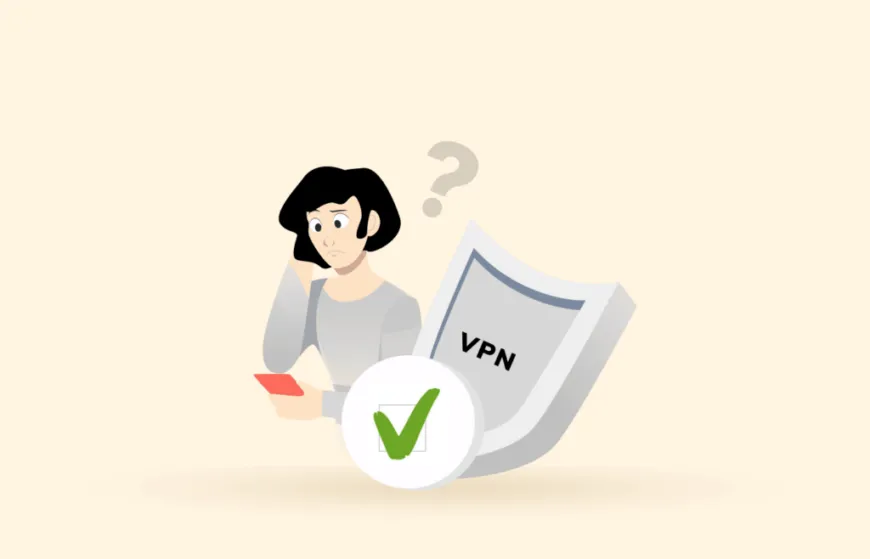
When we compare standard browsers to browsers with built-in VPNs, we can see that the latter provides various advantages to internet consumers. Below, we list the most obvious benefits of such browsers.
1. Improved security and privacy
When you get a VPN browser, one of the main advantages is improving your security and privacy. The increase in the quality of your online security results from a change in how your private data is transmitted. Your private data is routed through different networks, burying the original IP/location.
But your location can still be detected if the traffic is intercepted by government agencies, hackers, or whoever else can access that network. To avoid this, the VPN will encrypt your data before it routes it, creating a very secure channel for transmission.
2. Location switching
Location switching is an essential advantage of browsers with VPNs because most streaming services are often restricted to the locations from which they can be accessed. Certain brands restrict their services to certain locations, and as such, people in other locations would not get to access them.
For this situation, you need a VPN that can help “spoof” or switch your location so that it appears like you were in a location where those services were not banned. Spoofing allows you to bypass geo-blocks and gain access to any restricted services.
Also, a VPN service can ensure that government agencies can’t track or surveil you. In certain countries, the government seeks to stifle the populace and control what they know. With a VPN, citizens can access the full picture and not the limited, biased content.
3. Anonymity
Anonymity is such a nifty edge, especially on a very exposed internet, and VPNs are a great way to achieve it. When you use the internet, your online traffic is stored, processed, and monitored by the many websites you access.
The information in your internet activities includes your browser history, services utilized, etc. The VPN ensures none of your online activities, details about your IP, and other sensitive data are legible or detectable by third parties.
4. Ease of utility
The usual setup for a VPN would be a separate app and a browser extension to ensure the browser is protected, too. But with a browser with a built-in VPN feature, you don’t have to install a separate application while still getting the best of both worlds.
And while VPNs can be quite difficult to navigate, the in-built VPN is a much easier tool to understand and utilize — even for novices.
5. Budget-friendly
Most VPNs will come at a high cost, which can be inconvenient for those on a budget — especially regarding renewals. However, a VPN browser will usually be a freemium package or cost less than regular subscriptions.
A separate VPN subscription would often require research — forcing you to compare countless options, which can be tedious. But with the built-in VPN, you get one tailored specifically for your browser and device. In turn, you are spared the grueling chore of research, trial, and error that would normally come with getting a suitable VPN.
Also, the built-in VPN is cost-effective, saving you the extra cost of a subscription while giving you close to the same level of quality.
Disadvantages of using Browsers with built-in VPNs
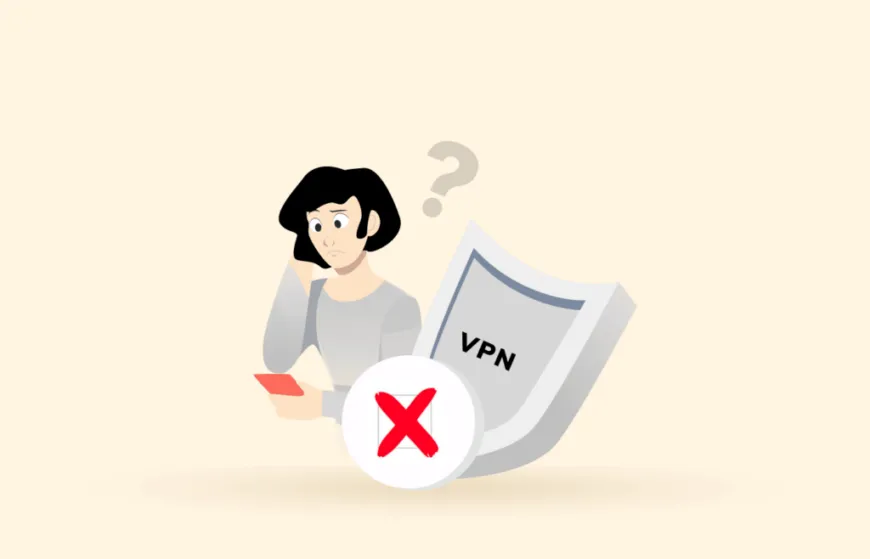
Just as there are a ton of positives that come with using browsers with built-in VPNs, there are also a ton of negatives to point out. Below are the major drawbacks of using a browser with a built-in VPN.
1. Small server network
Contrary to the expectations for a regular VPN, browsers with built-in VPNs have a limited range of servers. Users can only choose from a limited number of servers and server locations. The reduced options also mean the servers are often overloaded and prone to crashing.
2. Lesser privacy
Since the VPN is essentially tied to the browser, while the built-in VPN feature keeps you safe online, the browser stores your private data. But that’s just one of the threats; there is also the risk of the low-encryption VPN exposing you to potential harm.
Some of the VPNs do not have accessible privacy policies, and the ones that do may often sell logged user data as well.
3. Inconsistent compatibility
While VPN browsers are often compatible with multiple platforms and devices, certain services or websites block their access.
Some websites can detect low-rate VPNs and block users from accessing them, while others will scarcely tell the difference.
4. Issues with performance
Regular VPNs work to keep devices safe, private, and smooth. Built VPNs, however, aren’t so lucky — they are fairly good but only good enough so that you aren’t left unshielded.
The VPN browser can often impede your device’s performance and cause lagging. Because of this, we advise you to conduct ample research before committing to any browser with a built-in VPN.
Five sure tips to safeguard your privacy on the internet
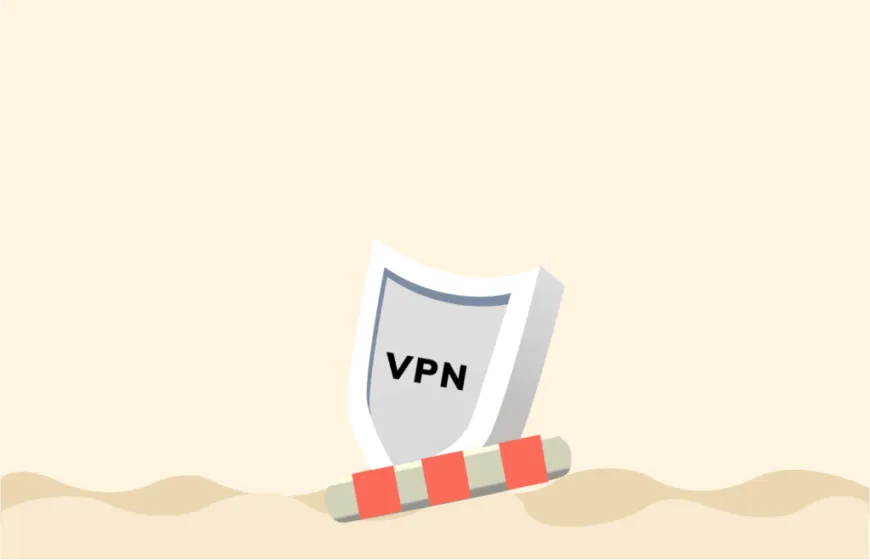
Because there are risks that come with using VPN browsers, there is the need to add extra layers of security or get alternative sources of protection altogether. Below are the top 5 sure tips for maintaining your privacy online:
1. Get a premium and reliable VPN
Standalone VPNs do the best of both worlds regarding security and privacy, but browser-built-in VPNs are often ill-equipped to handle both efficiently. Additionally, standalone VPNs come with much stronger protection and encryption against IP/DNS leaks, while built-in VPNs do not have programming to support either function.
While built-in VPNs have a limited number of servers and server locations, a standalone VPN would have, at all times, over 50000 different servers in over 50 locations. All of which utilize security protocols such as OpenVPN and IKEv2/IPSec.
2. Get a premium antivirus
The threat of data theft is real and one to guard against, but that’s not all you have to worry about as an internet user. There is also the very real risk of malware.
With an antivirus, however, you can stay safe from malware and other similar threats to your privacy. Your computer can be prone to malware in several ways, like clicking on a phishing link, downloading, entering a suspicious website, or even clicking on an ad.
Upon infection, the malware can track and log your internet activity, extract your private data, and jeopardize your online and real-world privacy. However, an antivirus can fight against infection and even prevent access to sites or files containing malware.
3. Select secure passwords
To prevent hackers or snoopers from gaining access to your private info, we recommend you use much more unique or strong passwords. These passwords should not have any connections to your personal life or give away any detail that could be reverse-engineered to guess it.
A strong password is formidable against the many ways hackers can steal them. Phishing, however, can be tricky, but the more complex and unique your password is, the harder it is for the hackers to steal it. Ensure you do not use the same password for multiple accounts as well.
If you cannot create strong enough passwords, that’s no problem. You can use any of the many password generators and managers to get secure, unique, and hard-to-guess passwords.
4. Prioritize installing privacy-centric extensions
Even as you may have installed a browser with a built-in VPN, adding an extra layer of protection in the form of a privacy-friendly browser extension won’t hurt. They work by joining in the protection process that is already underway. So they block cookies, ads, unwanted trackers, and anything else that could be a means to siphon your data.
So, while the built-in VPN does the heavy lifting, the privacy-friendly extension picks up any slacks, ensuring you have 100% protection at all times. The built-in VPN and the privacy extension work in tandem, ensuring no threats to privacy are let through.
The browser extension also ensures you get better control of your data, allowing you to decide which websites you can share your sensitive information with and the specific info you do not wish to share.
5. Use browsers optimized for privacy
Unlike browsers with built-in VPNs, browsers optimized for privacy are much better at protecting user privacy.
Their efficiency stems from the fact that, by design, they have a finely selected array of features and protocols that ensure user data is safe from monitoring or theft. The features include encrypted connections, trackers, ad blockers, and other privacy-centric features.
FAQs
Yes, the Firefox Mozilla browser has an in-built VPN. It uses the quick and safe WireGuard protocol and lets users protect up to 5 devices on one subscription. The VPN is powered by Mullvad VPN, a trusted service known for its advanced security and privacy.
No, Chrome does not have a built-in VPN.













